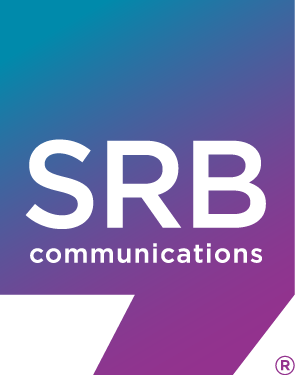News & Insights
Insights: SRB's Focus Groups Experience
One hallmark trait of storytelling is research. Generally, journalists take a deep dive into the topic, issue or incident. While marketers lean into analyzing personas and targeted audiences when they conduct market research, the outcome is the same – to craft a compelling narrative.
An important research tool to provide strategy and insights is focus groups. In the past five years, the SRB team conducted market research for our public health, energy and utilities and higher education business verticals. This blog is to unpack several tips you can use.
In a current partnership between Howard University and the CDC Foundation, what SRB Communications began in the fall of 2020 during the COVID-19 pandemic has become one of the most successful and longest longest-running public health marketing, public education and brand awareness campaigns our creative team has executed. Our research informed us on COVID-19 stigmas among underserved populations to address public health and racial justice inequities. Focus groups represented every region of the U.S. among Blacks, Latinos, Asians, undocumented and LGBTQ+ populations helped to amplify the stories in these communities as avenues to improve health, civic engagement, as well as to advance social justice.
In developing a strategy, this important introductory step should answer the following questions:
- “Why is the focus group research being conducted?”
- “What results do you expect from focus group findings?”
- “What action(s) and outcomes will we take based on this learning?”
- “How do we measure success?”
I am reminded of another marketing campaign a few years ago. The challenge for WSSC Water was creating a strong, consistent presence that helped customers understand that their utility partner better. Utility leadership wanted to remind customers that the organization was committed to their community, the quality of their water and the environment. WSSC Water is one of the largest water and wastewater utilities in the country, serving 1.9 million residents through about 460,000 customer accounts in Montgomery and Prince George’s Counties.
We learn from each focus group we conduct over the years. Once you define the parameters – different for every topic, issue, focus group makeup and population:
- determine how many total participants and how many per group
- select a screening questionnaire based on client input
- identify and select the venue and/or technology
- prepare the discussion guide (for participants and moderator)
- select moderators
- gather and deliver findings to the client
It doesn’t matter what your timeline is – whether it’s five months as we had for the Howard University and CDC Foundation COVID-19 stigma research, or as little as five weeks as we had to execute three focus groups in Philadelphia, Pennsylvania for a national non-profit working to advance racial equity and equality in policing in school. It is important to create engaging and meaningful discussions to provide valuable insights to interpretation of the learning from the focus groups.
The purpose for the research for the national non-profit was to identify top line messages to shift support of key target audiences for law enforcement as the principal solution for implementing and maintaining school and community safety for three population groups. The first group with Latino parents of middle- and high school students, the second group with Black parents of middle and high school students, and the third group with white teachers.
SRB began by coordinating preliminary tasks such as developing recruitment screeners, creating focus group discussion guides, site visits to secure venues in Philadelphia, and more. The SRB team became instant subject matter experts. Each team member submersed themselves in prior reports and findings on the topic of school policing and the school-to-prison pipeline. We developed a unique discussion guide for each focus group demographic to ensure we were able to truly connect with the primary audiences. The focus group questions were meant to uncover key audience touch points, common themes and biases relating to school police, most importantly, openings and opportunities for messaging that can shift them to withdraw their support from school police.
It is advisable to utilize the qualitative research method of focus groups not only to generate ideas for investigation, but to glean insights and findings based on the perceptions of participants and evaluate different situations among various populations, especially those historically and marginalized.
For our clients at SRB Communications, qualitative research is a critical element to developing and executing a campaign strategy. Our diverse team of communications and marketing professionals have specialized skills and decades of experience in facilitating focus groups and conducting research interviews. The SRB team is able to strengthen their marketing activities and better understand the customers’ needs, business objectives and target audiences. If you’re at a major corporation, public health or government agency and looking to build brand awareness for your marketing or advertising campaign, call SRB Communications today at (202) 775-7721. Or, visit our redesigned website at www.srbcommunications.com.



